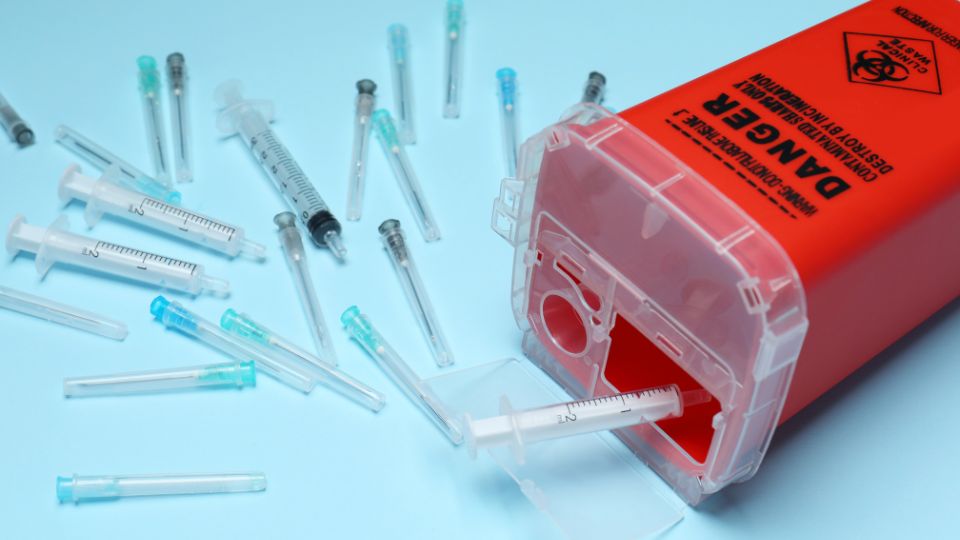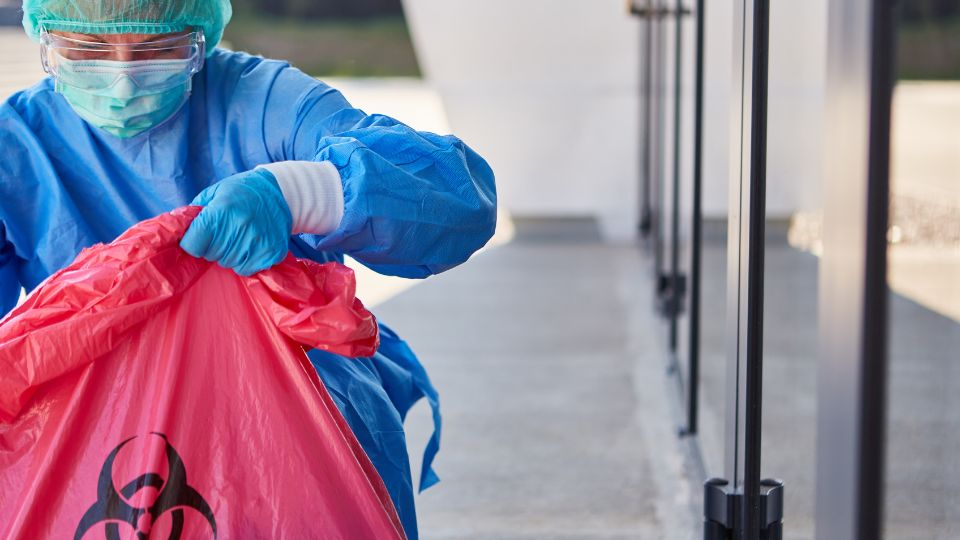
A Quick Summary
- Ensure compliance with UK regulations by training staff on clinical waste safety.
- Protect employees, patients, and the environment through proper waste management.
- Reduce risks and avoid penalties with effective training programmes.
Handling clinical waste safely is critical for any UK business operating in the healthcare sector.
Whether you’re running a hospital, dental practice, veterinary clinic, or any other healthcare facility, ensuring your staff are properly trained on clinical waste safety procedures is essential.
Not only does training staff on clinical waste help in maintaining a safe environment for both employees and patients, but it also ensures compliance with stringent UK regulations.
Table of Contents
- Why is Training Staff on Clinical Waste Important?
- Understanding UK Regulations on Clinical Waste
- Key Components of Effective Training Staff on Clinical Waste
- Implementing Ongoing Training and Support
- The Benefits of Proper Clinical Waste Safety Training
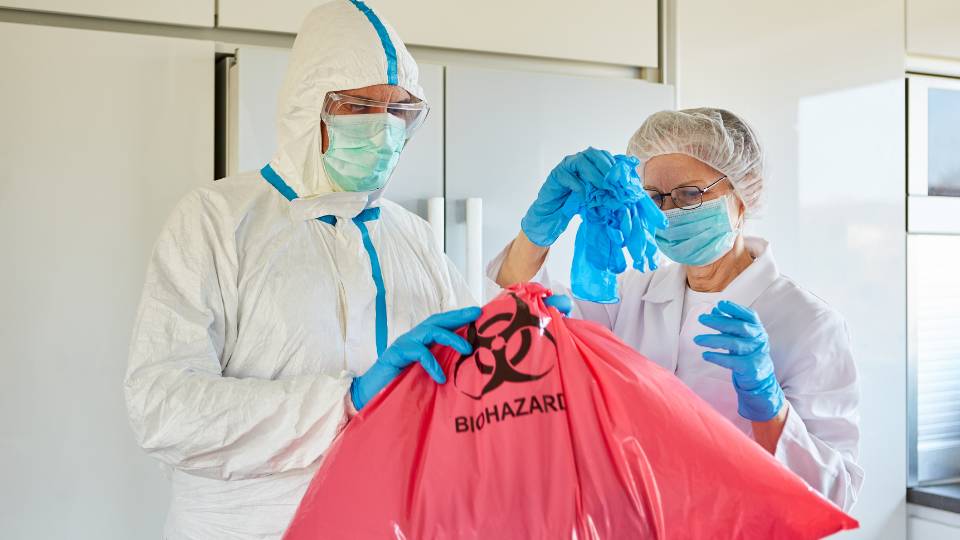
Why is Training Staff on Clinical Waste Important?
Clinical waste includes materials that could pose a risk of infection, such as needles, swabs, and other contaminated items.
Incorrect handling or disposal of these materials can lead to serious health risks, environmental damage, and legal repercussions.
Proper training ensures that all staff members understand how to manage these materials safely and effectively.
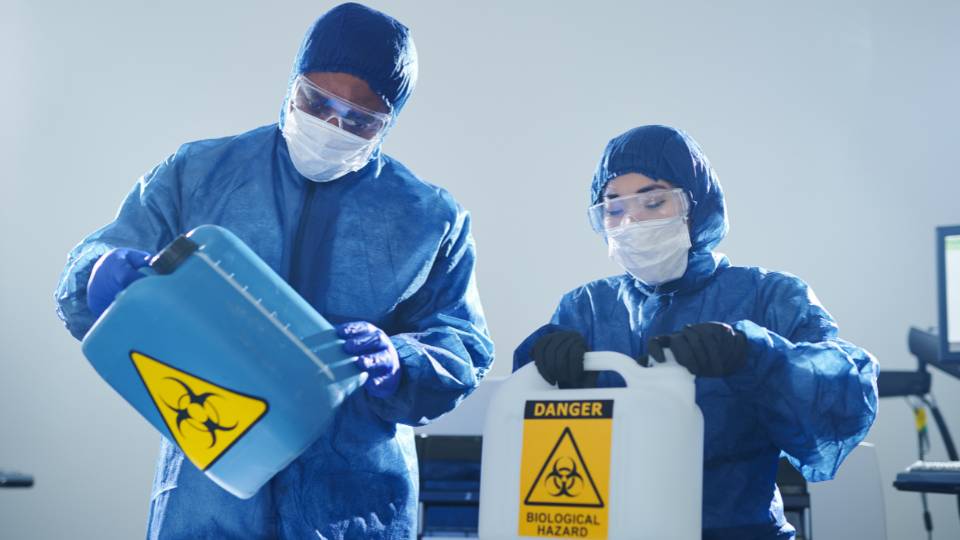
Understanding UK Regulations on Clinical Waste
The UK has specific regulations that govern the management of clinical waste.
The key pieces of legislation include the Environmental Protection Act 1990 and the Hazardous Waste Regulations 2005.
These laws require businesses to:
- Segregate waste properly, ensuring hazardous and non-hazardous wastes are disposed of correctly.
- Use appropriate containers and labels to avoid cross-contamination.
- Maintain accurate records of waste management activities.
Failure to comply with these regulations can result in hefty fines or even criminal charges.
By training staff on clinical waste and the relevant procedures, you reduce the risk of non-compliance and protect your business from legal trouble.
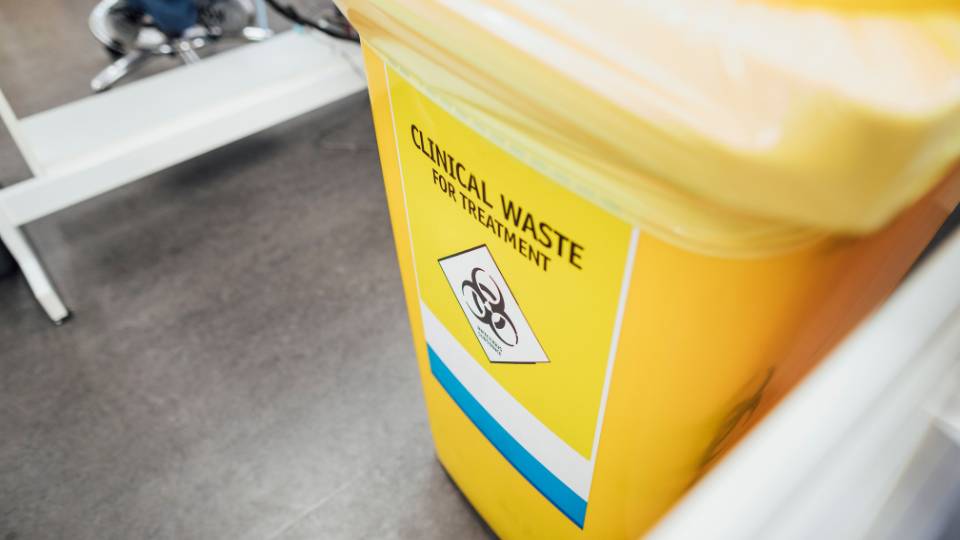
Key Components of Effective Training Staff on Clinical Waste
When developing a clinical waste training programme for your staff, it’s important to cover several critical areas:
1. Waste Segregation and Identification:
Train staff on how to identify different types of clinical waste and ensure they understand the importance of segregation.
This includes understanding the colour-coded waste bags and bins system used in the UK (e.g., yellow for infectious waste, orange for non-infectious clinical waste).
Safe Handling and Disposal Procedures:
Training staff on clinical waste should include how to handle clinical waste safely, including the use of personal protective equipment (PPE).
They should also know the correct disposal methods, such as using autoclaves or incinerators for hazardous waste.
Documentation and Compliance:
Staff should be familiar with the documentation required for clinical waste management, such as consignment notes for hazardous waste.
Regular audits should also be conducted to ensure ongoing compliance.
Work with a compliant waste management provider (just like us!) to keep your healthcare facility above board.
Emergency Procedures:
In the event of a spillage or exposure incident, staff need to know the appropriate emergency procedures to minimise risks and ensure safety.
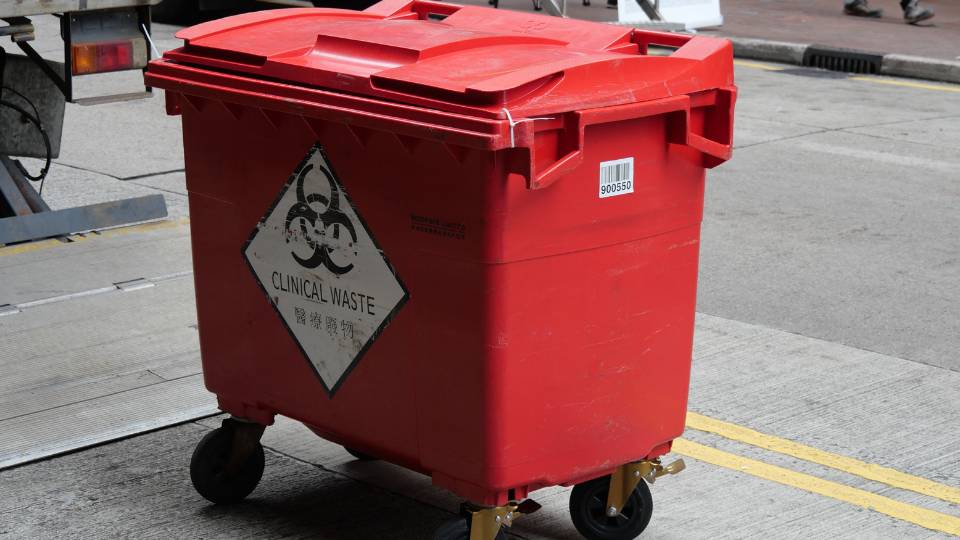
Implementing Ongoing Training and Support
Training staff on clinical waste shouldn’t be a one-off event.
Ongoing training and refresher courses are vital to keep staff up-to-date with the latest best practices and regulatory changes.
Consider the following steps:
- Regular Training Sessions: Schedule periodic sessions to reinforce key safety practices.
- Monitor and Audit: Continuously monitor your waste management processes and conduct audits to identify any gaps in knowledge or practice.
- Feedback and Improvement: Encourage staff to provide feedback on the whilst training staff on clinical waste, use this information to make continuous improvements.

The Benefits of Proper Clinical Waste Safety Training
By investing in thorough and ongoing clinical waste safety training, UK businesses can enjoy numerous benefits:
- Enhanced Safety: Properly trained staff are less likely to make mistakes that could lead to accidents or health hazards.
- Regulatory Compliance: Stay on the right side of the law and avoid fines or legal issues.
- Environmental Protection: Safe disposal practices help minimise the environmental impact of clinical waste.
- Improved Reputation: Demonstrating a commitment to safety and compliance can enhance your business’ reputation among clients and patients.

